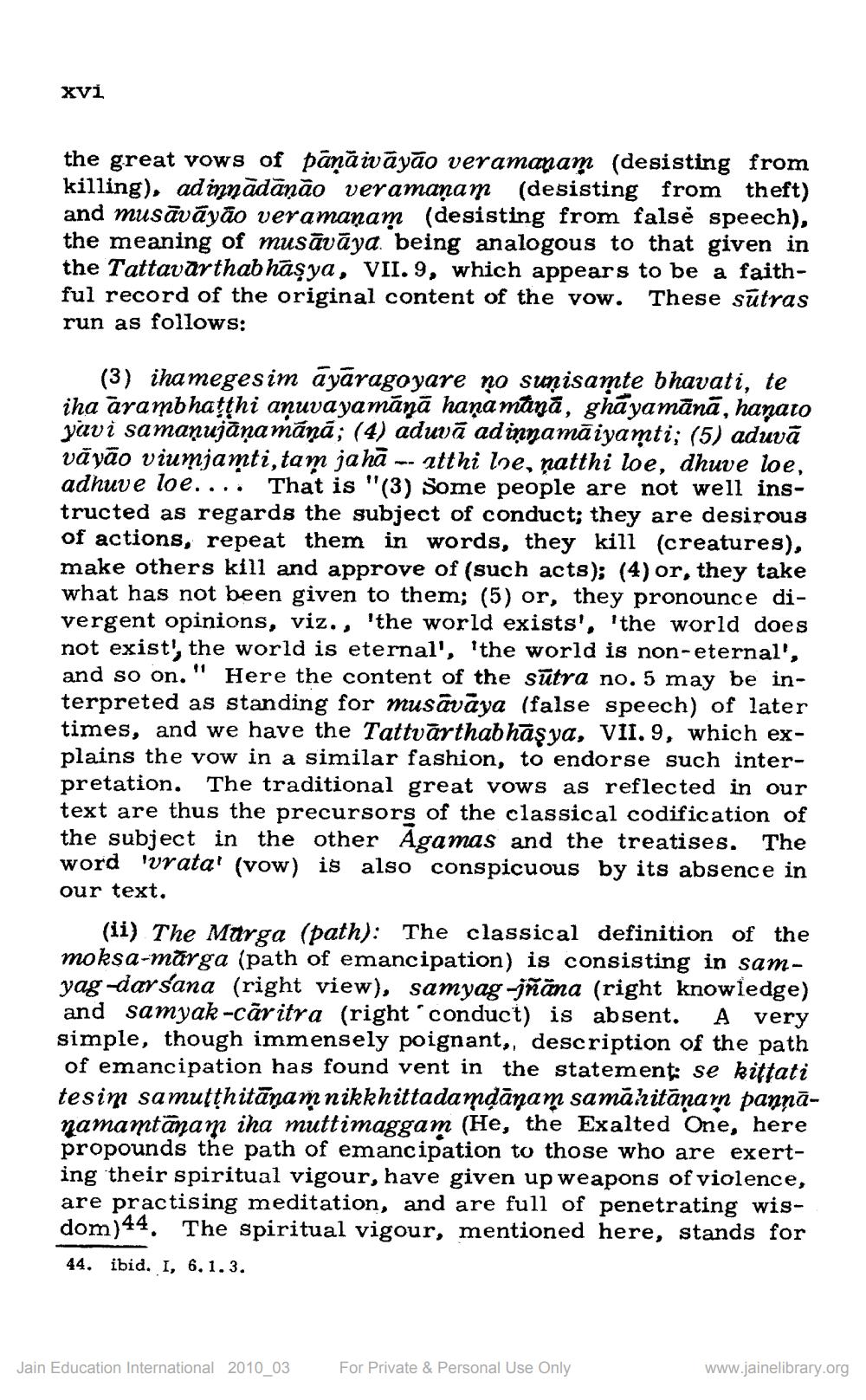________________
xvi
the great vows of pāņā ivāyāo veramanam (desisting from killing), adinnādāņão ver amanam (desisting from theft) and musāvāyão veramanam (desisting from falsě speech), the meaning of musāvāya. being analogous to that given in the Tattavarthabhāşya, VII. 9, which appears to be a faithful record of the original content of the vow. These sūtras run as follows:
(3) ihamegesim āyāragoyare no sunisamte bhavati, te iha ārambhatthi anuvayamānā hana manā, ghāyamānā, hanato yavi samanujāņamāņā; (4) aduvā adinyamā iyamti; (5) aduvā vãyão viumjamti, tam jahā - atthi loe, natthi loe, dhuve loe, adhuve loe.... That is "(3) Some people are not well instructed as regards the subject of conduct; they are desirous of actions, repeat them in words, they kill (creatures), make others kill and approve of (such acts); (4) or, they take what has not been given to them; (5) or, they pronounce divergent opinions, viz., 'the world exists', 'the world does not exist', the world is eternal', 'the world is non-eternal', and so on." Here the content of the sūtra no.5 may be interpreted as standing for musāvāya (false speech) of later times, and we have the Tattvārthabhāşya, VII. 9, which explains the vow in a similar fashion, to endorse such interpretation. The traditional great vows as reflected in our text are thus the precursors of the classical codification of the subject in the other Agamas and the treatises. The word 'vrata' (vow) is also conspicuous by its absence in our text.
(ii) The Marga (path): The classical definition of the moksa-marga (path of emancipation) is consisting in samyag-darsana (right view), samyag -jñāna (right knowledge) and samyak-cār itra (right conduct) is absent. A very simple, though immensely poignant,, description of the path of emancipation has found vent in the statement: se kitfati tesim samutthitānamnikkhittadamdānam samāhitānamn pannānamamtānam iha muttimaggam (He, the Exalted One, here propounds the path of emancipation to those who are exerting their spiritual vigour, have given up weapons of violence, are practising meditation, and are full of penetrating wisdom)44. The spiritual vigour, mentioned here, stands for 44. ibid. I, 6.1.3.
Jain Education International 2010_03
For Private & Personal Use Only
www.jainelibrary.org




